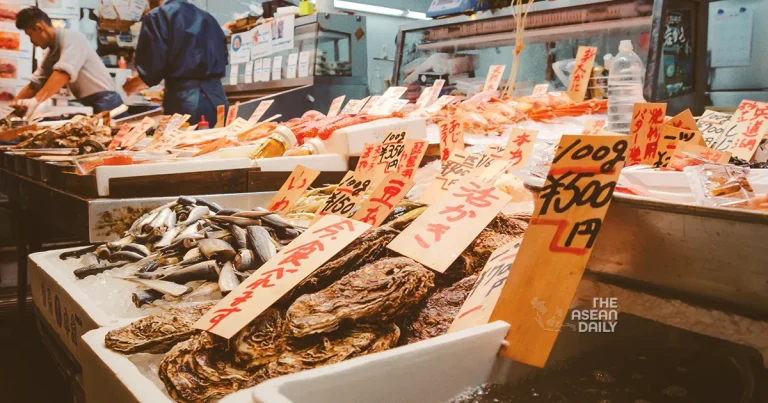28-9-2023 (MOSCOW) Russia is contemplating following China’s lead in prohibiting the import of Japanese seafood in response to Japan’s decision to release treated radioactive water from the damaged Fukushima nuclear power plant into the ocean. The Russian regulator conveyed its intention to engage in discussions with Japan on this matter.
Japan initiated the discharge of treated water from the Fukushima plant into the sea last month, a move that was met with strong criticism from China. In retaliation, China imposed a comprehensive ban on all aquatic imports from Japan.
The Russian food safety watchdog, Rosselkhoznadzor, disclosed on Tuesday that it had held discussions with its Chinese counterparts concerning Japanese food exports. Russia, being one of the prominent suppliers of marine products to China, is actively seeking to expand its market share.
In a statement, Rosselkhoznadzor declared, “Taking into account the possible risks of radiation contamination of products, Rosselkhoznadzor is considering the possibility of joining with Chinese restrictions on supplies of fish products from Japan. The final decision will be made after negotiations with the Japanese side.”
According to the regulator, Russia has imported 118 tonnes of Japanese seafood so far this year.
Japan, in response to Russia’s announcement, stated that it would closely examine the situation. Hirokazu Matsuno, the top spokesperson for the Japanese government, emphasized that Japan had treated the water to eliminate most radioactive elements, with the exception of tritium, a challenging radionuclide to separate from water. The treated water is diluted to internationally accepted levels before being released.
Japan also contended that the criticism from Russia and China lacked scientific substantiation. Matsuno urged Russia to base its actions on scientific evidence, highlighting that Russia was part of the International Atomic Energy Agency’s Fukushima expert team, which had approved the water release plan in July.
In its most recent water testing report, Japan’s Ministry of Environment revealed that the tritium concentrations in seawater samples collected on September 19 were below the lower limit of detection at all 11 sampling points. The report stated that this posed no adverse impact on human health or the environment.
Additionally, Russia’s far eastern branch of Rosselkhoznadzor reported that no irregularities were detected in marine samples tested in Russian regions near the location where the treated water was discharged.
Russia exported approximately 2.3 million metric tons of marine products valued at around $6.1 billion last year, constituting about half of its overall catch. The major importers of Russian marine products are China, South Korea, and Japan, according to Russia’s fisheries agency. This signifies the significant economic implications of any potential restrictions on Japanese seafood imports to Russia.




